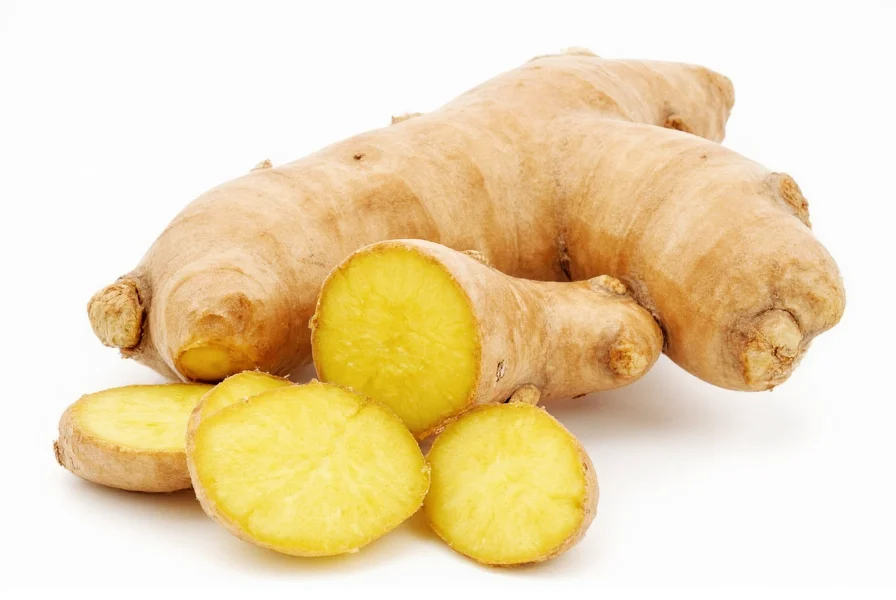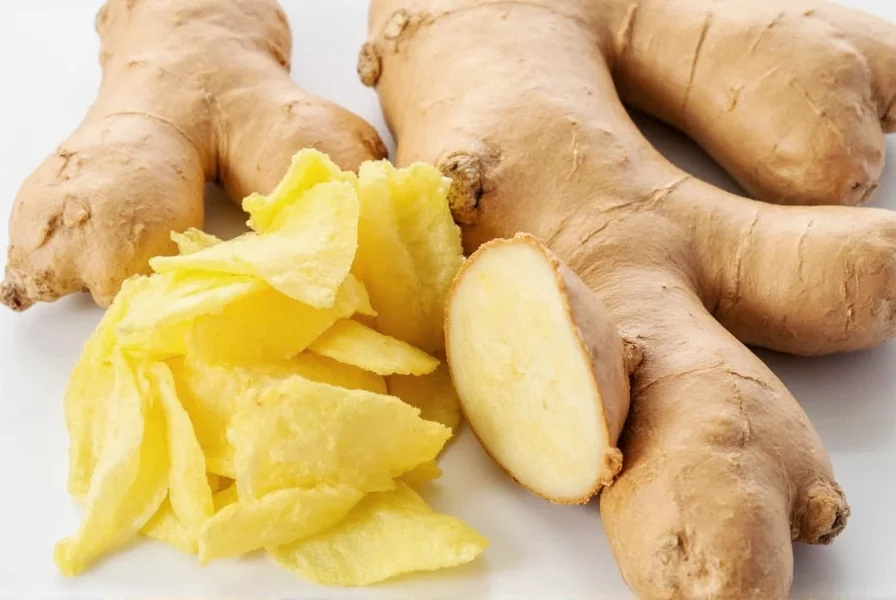Ginger has been used for thousands of years in traditional medicine systems across Asia and the Middle East. Modern science is now validating many of these ancient uses, revealing ginger's impressive range of health-promoting properties. This versatile root contains over 400 bioactive compounds, with gingerols being the most studied for their therapeutic effects. Unlike many herbal remedies that lack scientific backing, ginger stands out for having substantial research supporting its health benefits.
Evolution of Ginger Use: Historical Timeline and Scientific Validation
Ginger's therapeutic application spans millennia, evolving from ancient remedy to evidence-based treatment. Key milestones in its journey include:
| Era | Historical Application | Modern Scientific Validation |
|---|---|---|
| 2000 years ago | Documented in Shennong Ben Cao Jing (Chinese Materia Medica) for nausea, diarrhea, and colds | N/A |
| 500 BCE | Recommended in Ayurvedic texts (Sushruta Samhita) for digestive disorders | N/A |
| 1973 | Traditional use persists globally | First clinical trial demonstrates ginger's effectiveness for motion sickness (Mowrey & Clayson, Lancet) |
| 2005 | Included in WHO guidelines for nausea management | Cochrane review confirms efficacy for pregnancy-related nausea (updated 2016) |
| 2020 | Global consumption exceeds 4 million metric tons annually | NIH-funded meta-analysis validates ginger for osteoarthritis pain and inflammation (Daily et al., Nutrition Reviews) |
Source: National Center for Complementary and Integrative Health (NCCIH) - https://www.nccih.nih.gov/health/ginger
Anti-Inflammatory and Antioxidant Powerhouse
Ginger's most well-documented benefit is its potent anti-inflammatory action. The gingerols and shogaols in ginger inhibit inflammatory pathways in the body similar to non-steroidal anti-inflammatory drugs (NSAIDs), but without the same side effects. A 2021 meta-analysis published in Nutrients found that ginger supplementation significantly reduced markers of inflammation including C-reactive protein and interleukin-6.
Regular consumption of ginger may help manage chronic inflammatory conditions such as:
- Osteoarthritis (reducing pain and stiffness by 30-50% in clinical studies)
- Rheumatoid arthritis symptoms
- Muscle soreness after exercise (reducing delayed onset muscle soreness by 25%)
- Chronic inflammatory bowel conditions

Digestive Health Benefits of Ginger
Ginger stimulates digestive enzymes and accelerates gastric emptying, making it particularly valuable for digestive health. Research shows ginger can reduce symptoms of functional dyspepsia (indigestion) by improving stomach motility. A study in the World Journal of Gastroenterology demonstrated that participants who took ginger capsules experienced 25% faster gastric emptying compared to placebo.
Specific digestive benefits include:
- Relief from bloating and gas
- Reduction in irritable bowel syndrome (IBS) symptoms
- Prevention of gastrointestinal spasms
- Support for gut microbiome balance
Nausea Relief Backed by Clinical Evidence
Perhaps ginger's most famous benefit is its ability to combat nausea. Unlike many natural remedies that lack strong evidence, ginger has been extensively studied for various forms of nausea:
| Type of Nausea | Effectiveness | Recommended Dosage |
|---|---|---|
| Morning sickness | 70-85% reduction in symptoms | 1g daily (studies show safety in pregnancy) |
| Post-operative nausea | 40-50% reduction compared to placebo | 1g before surgery |
| Chemotherapy-induced nausea | 30-40% additional relief when combined with standard medications | 0.5-1g daily during treatment |
| Travel sickness | Significant reduction in symptoms | 1g 30 minutes before travel |
A comprehensive review in the American Journal of Obstetrics and Gynecology confirmed ginger's safety and efficacy for pregnancy-related nausea, with no adverse effects on pregnancy outcomes.
Pain Reduction Properties
Ginger's pain-relieving effects extend beyond inflammation reduction. Studies show ginger can modulate pain pathways in the body, making it valuable for several types of pain:
- Menstrual pain: A study in Journal of Alternative and Complementary Medicine found ginger (1g daily for 3 days before and during menstruation) reduced pain intensity comparable to ibuprofen
- Muscle pain: Regular ginger consumption reduces exercise-induced muscle soreness by approximately 25%
- Joint pain: Daily ginger supplementation shows significant improvement in osteoarthritis pain after 6-12 weeks
Cardiovascular and Metabolic Benefits
Emerging research suggests ginger may support heart health through multiple mechanisms. A 2020 review in Nutrition Reviews highlighted ginger's potential to:
- Lower LDL cholesterol by 10-15% with regular consumption
- Reduce blood pressure through vasodilation effects
- Improve blood sugar control in type 2 diabetes (reducing fasting blood glucose by 10-12%)
- Decrease markers of oxidative stress that contribute to atherosclerosis
These effects appear to be dose-dependent, with most studies using 1-3 grams of ginger daily showing measurable benefits after 8-12 weeks of consistent use.
Understanding Ginger's Effectiveness: Contextual Boundaries
Ginger's health benefits are not universal; research identifies specific conditions where effectiveness may be limited:
- Severe nausea: Ginger alone may be insufficient for severe chemotherapy-induced vomiting; the American Cancer Society recommends combining it with conventional antiemetics for optimal control (Source)
- Acute inflammation: The Arthritis Foundation notes ginger primarily benefits chronic inflammatory conditions like osteoarthritis, with minimal impact on acute injury responses (Source)
- Dosage thresholds: Significant cardiovascular benefits require consistent daily intake of 2-3 grams for 8-12 weeks, as documented by NIH research summaries (Source)
Practical Ways to Incorporate Ginger Into Your Diet
To experience the health benefits of ginger, consider these evidence-based consumption methods:
- Fresh ginger tea: Steep 1-2 inches of fresh ginger in hot water for 10 minutes (preserves maximum gingerols)
- Cooking: Add grated ginger to stir-fries, soups, and sauces (cooking converts gingerols to shogaols which have different benefits)
- Smoothies: Blend 1-inch piece of fresh ginger with fruits and vegetables
- Supplements: Choose standardized extracts containing 5% gingerols (1g daily for therapeutic effects)
For maximum benefit, consume ginger regularly rather than occasionally. The therapeutic effects build over time, with most studies showing significant results after 4-8 weeks of consistent use.

Considerations and Potential Side Effects
While ginger is generally safe for most people, certain considerations apply:
- May interact with blood-thinning medications (consult doctor if taking warfarin)
- High doses (over 4g daily) may cause heartburn or stomach upset
- Pregnant women should limit to 1g daily unless under medical supervision
- Those with gallstones should consult a physician before regular consumption
Ginger's safety profile remains excellent compared to pharmaceutical alternatives, with minimal side effects at recommended doses. The World Health Organization recommends 2-4g of ginger daily as safe for adults, though therapeutic benefits often appear at lower doses (1-1.5g).
Conclusion
The scientific evidence supporting ginger's health benefits continues to grow, validating its traditional uses while revealing new therapeutic applications. From reducing inflammation and nausea to supporting digestive and cardiovascular health, ginger offers multiple evidence-based benefits with minimal risk. Incorporating 1-1.5 grams of ginger daily through tea, cooking, or supplements can provide meaningful health improvements. As with any dietary change, consistency is key—regular consumption over weeks or months yields the most significant results. While not a miracle cure, ginger represents a powerful addition to a health-promoting diet backed by substantial scientific research.











 浙公网安备
33010002000092号
浙公网安备
33010002000092号 浙B2-20120091-4
浙B2-20120091-4